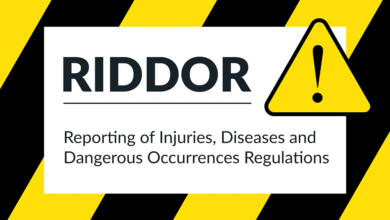Debbie Blackburn LighterLife: Transforming Lives with Effective Weight Management

Debbie Blackburn LighterLife is a prominent name in the UK’s weight management industry. Known for her compassionate approach, she has helped countless individuals achieve lasting weight loss and improved wellbeing. Through her guidance, clients not only lose weight but also develop healthier habits, making Debbie Blackburn LighterLife a trusted choice for anyone seeking transformation.
Her journey is inspiring, reflecting both personal dedication and professional expertise. Debbie Blackburn LighterLife combines experience with a genuine commitment to improving lives. Her methods are tailored to individual needs, ensuring that each client receives the support and motivation necessary to succeed. This article explores her career, approach, and impact on the weight management community.
Who is Debbie Blackburn
Debbie Blackburn is a highly regarded weight management counsellor based in Worcestershire, UK. Her background includes years of dedication to health and wellness, which she channels into her work at LighterLife. Many people search for Debbie Blackburn lighterlife to learn about her approach, achievements, and client success stories, highlighting her influence in the field.
In addition to her professional work, Debbie Blackburn lighterlife has become a source of inspiration for those looking to transform their lives. Her experience and personal journey make her relatable and trusted. Information about Debbie Blackburn, including her age and background, further adds to her credibility and public interest in her work.
Debbie Blackburn’s Role in LighterLife
Debbie Blackburn lighterlife plays a vital role in the LighterLife weight management programme, guiding clients through structured plans designed for long-term success. Her personalised counselling sessions help individuals overcome challenges, maintain motivation, and achieve their weight loss goals. By focusing on both diet and mindset, she ensures sustainable results.
Clients often praise Debbie Blackburn lighterlife for her empathetic and encouraging style. Through workshops, one-on-one sessions, and ongoing support, she addresses the unique needs of each individual. Her success stories reflect the positive impact of her work, with many clients experiencing significant improvements in health and confidence.
Personal Life and Public Recognition

Outside of her professional work, Debbie Blackburn lighterlife maintains a strong public profile. She has been recognised for her achievements in the health and wellness sector, earning awards and praise for her dedication. Her personal journey, including overcoming challenges and achieving her own health goals, inspires those she counsels.
Debbie Blackburn lighterlife is also known in the UK community for her accessibility and engagement. Many searches link her name to locations such as Worcestershire and Halesowen, demonstrating her local influence. By blending professional expertise with personal insight, she creates an approachable and trustworthy environment for her clients.
Addressing Public Interest and Queries
Many people are curious about Debbie Blackburn lighterlife, including her age, background, and career milestones. Questions like “how old is Debbie Blackburn” and “Debbie Blackburn Wikipedia” are common. Sharing accurate, respectful information helps clients and followers connect with her journey and professional story.
Some searches also mention her connections to the entertainment industry, such as “Debbie Blackburn theatrical agent” or public figures like Tony Blackburn. While these queries arise from public curiosity, Debbie Blackburn lighterlife remains focused on her mission of promoting health, wellness, and sustainable weight management solutions.
Legacy and Impact on the Weight Management Industry
Debbie Blackburn lighterlife has made a lasting impression in the weight management sector. Her methods not only help clients lose weight but also teach long-term healthy habits. By transforming lives, she contributes to broader wellness awareness in her community and beyond, solidifying her reputation as a dedicated and effective counsellor.
Her legacy is evident in the countless testimonials and success stories from clients who have experienced life-changing results. Debbie Blackburn lighterlife continues to inspire individuals to embrace healthier lifestyles, making her work both impactful and enduring. Her approach highlights the importance of personalised support in achieving sustainable weight loss.
Conclusion
Debbie Blackburn lighterlife exemplifies dedication, expertise, and compassion in the field of weight management. Through her personalised programmes, she has transformed lives across the UK, helping clients achieve both physical and mental wellbeing. Her ongoing commitment makes her a trusted figure for anyone seeking meaningful health improvements.
For those looking to embark on a weight management journey, Debbie Blackburn lighterlife offers guidance, motivation, and proven strategies. Her work demonstrates that sustainable weight loss is achievable with the right support, making her a leading name in the UK’s health and wellness community.
Frequently Asked Questions
Who is Debbie Blackburn?
Debbie Blackburn is a UK-based counsellor and coach associated with LighterLife, specialising in weight management and personal development.
What is Debbie Blackburn’s role at LighterLife?
She works as a LighterLife counsellor, guiding clients through structured programmes to achieve weight loss and lifestyle improvements.
How old is Debbie Blackburn?
Her exact age is not publicly disclosed.
Is Debbie Blackburn connected to Tony Blackburn?
No, there is no public connection between Debbie Blackburn and Tony Blackburn.
Where is Debbie Blackburn based in the UK?
She operates in the UK, but the exact location is not publicly listed for privacy reasons.
What are some success stories of Debbie Blackburn’s clients?
Clients report significant weight loss, improved confidence, and better overall health under her guidance.
Did Debbie Blackburn work as a theatrical agent?
There is no verified information indicating she worked as a theatrical agent.
Is there a Debbie Blackburn obituary?
No obituary exists; she is currently active in her professional work.
How can someone contact Debbie Blackburn for LighterLife counselling?
Contact can typically be made through the official LighterLife website or local LighterLife centres.
Also Read: is calcium a metal or a nonmetal



